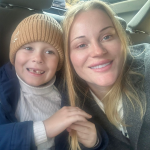Comorbidity and Autism
Autistic children often have additional disorders of physical or mental development. In the specialized literature describing impairments that autists have and diseases they suffer from, these are called “comorbid,” meaning they are neither a consequence nor a cause of ASD.
Approximately 70% of autistic patients suffer from comorbidities. In almost all cases, these comorbidities determine the need for more intensive therapy.
Autism and Related Disorders
- About 40-60% of autistic children have cognitive disorders.
The assistance program may include developmental techniques, psychological and behavioral correction, and symptomatic therapy. - Approximately 10-15% of children are diagnosed with genetic abnormalities.
Angelman syndrome, fragile X syndrome, duplications of chromosome number 15, and tuberous sclerosis are common. Genetic tests are now more accessible in terms of cost and diagnostic capabilities of average clinics. If parents suspect chromosomal mutations, it is better to undergo additional testing to draw up more effective therapeutic protocols in the future. - Psychiatric disorders are diagnosed in approximately 10% of cases.
Depression and anxiety are psychiatric diseases commonly associated with autism. Very often, children suffer from repetitive actions, obsessive thoughts, and ideas. - 35-40% of people with ASD are diagnosed with epilepsy or seizure disorders.
Patients with cognitive and genetic syndromes are the majority of people diagnosed with these diseases. - Attention deficit hyperactivity disorder is found in 25-35% of autistic patients.
- Many children with ASD suffer from diseases of the gastrointestinal tract.
Comorbid diseases of the gastrointestinal system include chronic constipation, gastritis, inflammation of the esophagus, colitis, and metabolic disorders. The development of these diseases is often caused by food selectivity, which is characteristic of many children with ASD. - Disorders of sleep and wakefulness are also common in both babies and adolescents.
These may be the result of physiological problems, such as gastroesophageal reflux or obstructive sleep apnea. Treatment of these problems can improve sleep patterns. However, sleep problems are usually caused by behavioral abnormalities, meltdowns, anxiety, and stress.
Effective and Comprehensive Treatment of Autism and Related Disorders in the Modern World
Stem cell therapy technology is successfully used now for the correction of childhood autism. Its popularity is related to its unique effect on ASD — unlike other techniques, it eliminates the cause of the disease’s development. Undergoing the stem cell transplantation procedure at the Mardaleishvili Medical Centre in Georgia is the most advantageous. Modern cellular treatment for childhood autism is in high demand because it is maximally natural for the body, safe, and effective. It also enhances the therapeutic effect of other curative methods.
Choose full-fledged treatment for childhood autism spectrum disorder with cell therapy — and also rid your child of concomitant pathologies!
Autism Treatment Center Videos
Autism treatment with own stem cells
Cord blood association congress
International Quality Crown
Autism Treatment Reviews
Autism treatment with own stem cells
The story of Alessandro (6 years old)
Autism Patient Testimonial - Stem Cell Treatment
Clients Testimonials

Review by Anastasia, mother of Yusup (8 years old) Read More

Feedback from Nathalie, mother of Andre (9 years old) Read More

Feedback from Yulia, mother of Emily (7 years old) Read More

Feedback by Everita, Katrina’s mother (5 years old) Read More

Feedback from Igor, David’s father (12 years old) Read More












